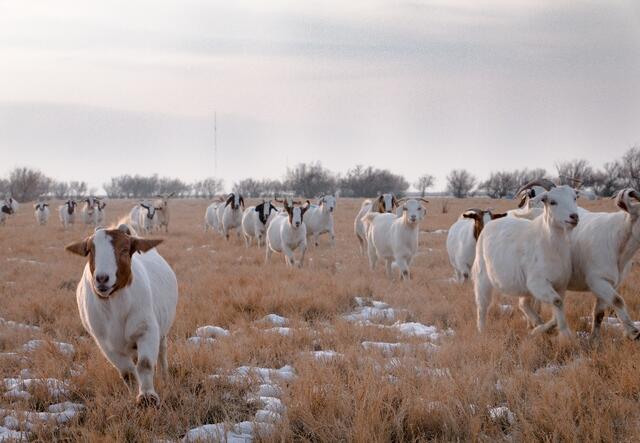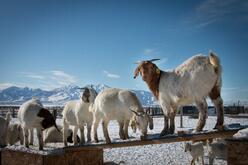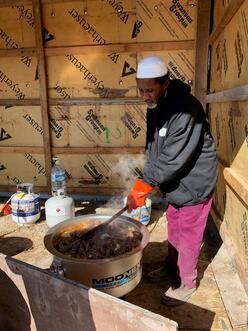Bajuni, Somali Bantu, and Burundian refugee communities of Salt Lake City to sustain and manage the East African Refugee Goat Project. On an 80-acre ranch site just 15 minutes from downtown Salt Lake City, members of the East African refugee communities manage a herd of over 100 goats (plus 3 guardian llamas) as a source of culturally appropriate goat meat, a means of generating income to support refugee women and youth, and a place to continue cultural practices related to livestock husbandry.
A founding goal of the East African Refugee Goat Project was to work toward transitioning ownership of the ranch to the refugee communities who would operate the ranch independently from the International Rescue Committee (IRC) in Salt Lake City. In the summer of 2021, we achieved this goal! The East African refugee communities incorporated their new nonprofit organization, Utah Refugee Goats, and assumed management of the goat ranch in July 2021.

Utah Refugee Goats (URG) is a refugee-led entity represented by the three East African communities who initially started the Goat Project—the Somali Bantu, Somali Bajuni and Burundian communities. Through URG, these communities will leverage resources and knowledge gained in partnership with the IRC over the past eight years to increase the size of the goatherd, better meet the demand among refugees for a reliable and cost-effective source of goat meat, and strengthen the connections between the broader community and members of the refugee community.

With continuing support from IRC, partner organizations, and supporters like you, Utah Refugee Goats will continue to provide refugees in our community with access to culturally appropriate goat meat, youth education opportunities, and income-generating goat husbandry activities.
How can I get involved as a volunteer?

Currently, Utah Refugee Goats is seeking volunteers to perform morning and evening feeding shifts at the goat ranch. These shifts are approximately one hour long and involve plenty of goat interaction! Volunteer opportunities are currently operated with support from the Utah Refugee Services Office and their Know Your Neighbor program. To get involved, visit the Know Your Neighbor website and fill out the volunteer interest form for the Refugee Goat Farm.
Utah Refugee Goats also hosts volunteer groups throughout the year that perform work service projects. Contact info@refugeegoats.org if your group is interested in receiving more information about serving at the ranch. Volunteer groups can help out in all sorts of capacities, from trimming hooves to building fences and play structures.
How can I contribute to support the work of Utah Refugee Goats?
Contribute a monetary donation to Utah Refugee Goats via their GoFundMe campaign.
How can I keep up with URG’s activities?
Visit the Utah Refugee Goats website at www.refugeegoats.org.
Stay up to date with URG by following them on Facebook, Instagram, and Twitter!
Specific inquiries can be made by reaching out to info@refugeegoats.org.